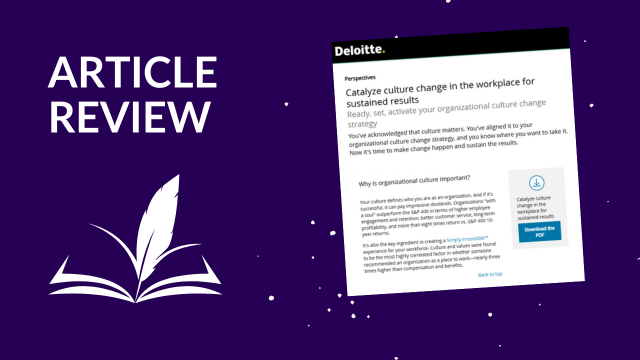Leadership may be positional, but true leadership is about how you show up.
As a change practitioner, you may lead a change team, or you may not. Either way, bringing radical transparency to your work can significantly increase the value that you bring to the change efforts you are supporting. “Radical transparency does not mean telling someone to his face in front of his peers that his polka-dotted tie is ugly. It’s having the emotional courage to stand up to someone or something when you feel violated, to speak from a deep place tugging at your heart, or to cut through healthy conflict now to avoid unhealthy conflict later.”
In his article How Can You Tell Someone Has True Leadership Skills? Look for This 1 Rare Sign, Marcel Schwantes explores the value of radical transparency. He uses as his example Chip Bergh, chief executive of Levi Strauss & Co. and radical transparency about performance. This is an area where we, too, can apply radical transparency. Are the change leaders we are supporting fulfilling their responsibilities in that role, or are they expecting us to “take care of it?” Are the project team members we are working with performing to high standards, or are they “getting by?” Are we being radically transparent with ourselves and others about what we can—and what we cannot—do to meet the expectations placed on us?
If radical transparency in your current role will make you shark bait, are you in the best place to practice your craft?







